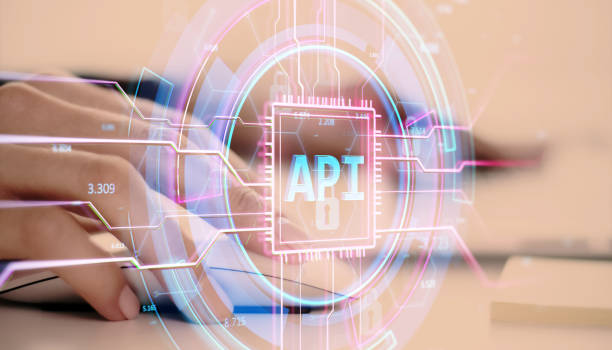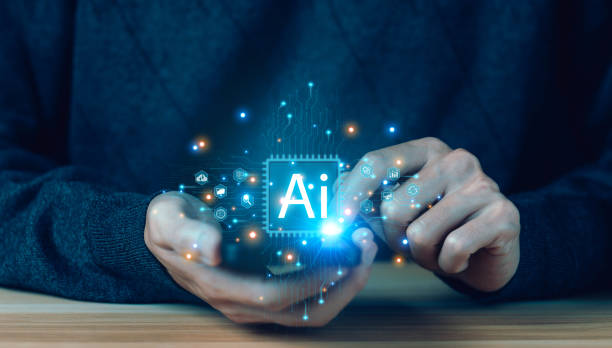What is Artificial Intelligence? Definition, History, and Key Concepts

What is Artificial Intelligence? Definition, History, and Key Concepts
#Artificial_Intelligence, often abbreviated as AI, is a branch of computer science that focuses on building machines and systems capable of performing tasks that typically require human intelligence.
These tasks include learning, reasoning, problem-solving, understanding natural language, and recognizing patterns.
In other words, the goal of artificial intelligence is to create systems that can think, learn, and act like humans.
The roots of artificial intelligence trace back to the 1950s, when scientists like Alan Turing and John McCarthy began to explore the possibility of building intelligent machines.
The Turing Test, proposed by Alan Turing, is a criterion for assessing a machine’s ability to exhibit intelligent behavior indistinguishable from that of a human.
John McCarthy is also known as the father of artificial intelligence and played a significant role in the development of this field.
Key concepts in artificial intelligence include:
- Machine Learning This branch of AI enables machines to learn from data without explicit programming.
- Neural Networks Computational models inspired by the structure of the human brain, used for learning complex patterns and relationships in data.
- Natural Language Processing This field enables machines to understand and process human language.
- Computer Vision This branch of AI enables machines to see and interpret images.
- Robotics The design and construction of robots capable of performing various tasks.
With advancements in technology and the increasing volume of data, artificial intelligence is rapidly developing and has applications in various fields, including medicine, economics, industry, and education.
By analyzing vast amounts of data, AI can significantly contribute to faster progress in various sciences.
Are you frustrated by your e-commerce site’s low conversion rate? Rasaweb transforms your online store into a powerful tool for attracting and converting customers!
✅ Significant increase in visitor-to-buyer conversion rate
✅ Unparalleled user experience to boost customer satisfaction and loyalty⚡ Get free consultation from Rasaweb!
Types of Artificial Intelligence: Approaches and Classifications

Types of Artificial Intelligence: Approaches and Classifications
Artificial intelligence can be categorized based on various criteria.
One of the most common methods is classification based on capability and performance:
- Narrow AI: This type of AI is designed to perform a specific task and excels in that particular domain.
Examples of narrow AI include facial recognition systems, search engines, and voice assistants like Siri and Google Assistant. - General AI: This type of AI possesses cognitive abilities similar to humans and can perform any task a human is capable of.
General AI is still in the research and development phase and has not yet been fully realized. - Super AI: This type of AI surpasses human intelligence and can outperform humans in all fields.
Super AI is a hypothetical concept and does not yet exist.
Additionally, artificial intelligence can be categorized based on the approaches used in its development:
- Machine Learning: This approach allows machines to learn from data and recognize patterns using various algorithms.
- Deep Learning: This approach uses deep neural networks to learn complex patterns in data.
Deep learning has been very successful in fields such as computer vision and natural language processing. - Expert Systems: These systems use specialized knowledge in a particular domain to solve problems.
- Planning: This approach allows machines to design plans to achieve specific goals.
Choosing the appropriate approach for AI development depends on the type of task and the available data.
Each of these approaches has its own advantages and disadvantages and is more suitable for specific applications.
Applications of Artificial Intelligence in Various Industries + Table

Applications of Artificial Intelligence in Various Industries + Table
Artificial intelligence is rapidly penetrating various industries and has widespread applications in diverse fields.
By automating processes, improving decision-making, and creating innovative products and services, this technology helps companies increase their productivity and enhance their competitiveness.
Some of the most important applications of artificial intelligence in various industries include:
- Medicine and Healthcare: Disease diagnosis, drug development, personalized care delivery, surgical robots
- Finance and Banking: Fraud detection, risk management, financial advisory services, algorithmic trading
- Manufacturing: Production line automation, quality control, equipment failure prediction, supply chain optimization
- Retail: Product recommendations, inventory management, customer service, customer behavior analysis
- Transportation: Autonomous vehicles, route optimization, traffic management, smart navigation systems
- Education: Personalized learning, automated assignment grading, creation of interactive educational content
For example, in the medical industry, artificial intelligence can assist doctors in more accurate disease diagnosis.
Machine learning algorithms can analyze medical images such as MRI and CT scans and identify patterns that might remain hidden from human perception.
This can lead to earlier disease detection and improved treatment outcomes.
| Industry | Application | Benefits |
|---|---|---|
| Medicine | Disease Diagnosis | Higher accuracy, early detection |
| Finance | Fraud Detection | Risk reduction, loss prevention |
| Manufacturing | Automation | Increased productivity, reduced costs |
| Transportation | Autonomous Vehicles | Reduced accidents, improved traffic flow |
Machine Learning and its Role in Artificial Intelligence

Machine Learning and its Role in Artificial Intelligence
Machine learning is one of the main branches of #Artificial_Intelligence that enables machines to learn from data without explicit programming.
In fact, machine learning gives machines the ability to identify patterns and relationships in data using various algorithms and make decisions or predictions based on them.
There are different types of machine learning algorithms, each suitable for a specific type of problem:
- Supervised Learning: In this type of learning, the machine is trained using labeled data.
In other words, the data has specified inputs and outputs, and the machine learns how to predict the output based on the input. - Unsupervised Learning: In this type of learning, the machine is trained using unlabeled data.
In other words, the data only contains inputs, and the machine must automatically identify patterns and structures within the data. - Reinforcement Learning: In this type of learning, the machine learns through trial and error in a specific environment how to perform actions that yield the greatest reward.
Machine learning plays a very important role in the development of artificial intelligence.
Many AI applications, such as facial recognition, voice recognition, product recommendations, and autonomous vehicles, are built upon machine learning algorithms.
For example, in facial recognition systems, machine learning algorithms are trained using images of people’s faces and learn how to identify different faces.
These systems can be used in security cameras, social networks, and other applications.
Are you bothered by losing customers who visited your site to make a purchase?
Rasaweb is your specialized solution for a successful online store.
✅ Significant increase in your online sales
✅ Building trust and professional branding with customers⚡ Get free consultation from Rasaweb experts!
Neural Networks and Deep Learning

Neural Networks and Deep Learning
Neural networks are computational models inspired by the structure of the human brain, used for learning complex patterns and relationships in data.
These networks consist of a large number of nodes (neurons) connected in layers.
Each node receives an input, processes it, and produces an output.
The output of each node is then used as input for the nodes in the next layer.
Deep learning is a subset of machine learning that uses deep neural networks (networks with many layers) for learning.
Deep neural networks are capable of learning very complex patterns in data and have been highly successful in fields such as computer vision, natural language processing, and speech recognition.
One of the most significant advantages of deep neural networks is that they do not require feature engineering.
In traditional machine learning methods, engineers have to manually extract important data features and provide them to the machine learning algorithm.
However, deep neural networks are capable of automatically learning important data features.
For example, in computer vision systems, deep neural networks can automatically learn features such as edges, corners, and textures from images and use these features for object detection.
This makes computer vision systems much more accurate and efficient.
Deep learning and neural networks, as one of the main pillars of artificial intelligence, are rapidly developing and have extensive applications in various fields.
More information about deep learning
Natural Language Processing and Language Understanding by Machines

Natural Language Processing and Language Understanding by Machines
Natural Language Processing (NLP) is a branch of #Artificial_Intelligence that enables machines to understand, process, and generate human language.
The main goal of NLP is to create systems that can communicate with humans in natural language and perform tasks such as machine translation, text summarization, question answering, and sentiment analysis.
There are many challenges in natural language processing.
Human language is very complex and ambiguous, with numerous grammatical and semantic rules.
Additionally, human language is influenced by various factors such as culture, context, and emotions.
To solve these challenges, NLP researchers use various methods, including:
- Machine Learning Algorithms: For learning patterns and relationships in language.
- Neural Networks: For modeling the complex structure of language.
- Grammar Rules: For analyzing sentence structure.
- Lexicons and Knowledge Bases: For providing information related to words and concepts.
Natural language processing has widespread applications in various fields.
Some of the most important applications of NLP include:
- Machine Translation: Automatic translation of text from one language to another.
- Text Summarization: Generating concise and accurate summaries of long texts.
- Question Answering: Providing accurate and relevant answers to user questions.
- Sentiment Analysis: Detecting emotions in texts, such as customer reviews on social media.
- Voice Assistants: Creating intelligent voice assistants like Siri and Google Assistant.
With technological advancements and the increasing volume of textual data, natural language processing is rapidly developing and will play a significant role in the future of artificial intelligence.
The Future of Artificial Intelligence: Opportunities and Challenges

The Future of Artificial Intelligence: Opportunities and Challenges
Artificial intelligence is rapidly advancing and is expected to play a very important role in our lives in the future.
This technology can create many opportunities for improving quality of life, increasing productivity, and solving complex problems.
However, the development of artificial intelligence also comes with challenges that need to be addressed.
Some of the most important opportunities presented by artificial intelligence include:
- Improved Health and Treatment: AI can help doctors diagnose diseases more accurately, develop new drugs, and provide personalized care.
- Increased Productivity: AI can automate various processes and increase productivity across different industries.
- Job Creation: The development and implementation of AI can lead to the creation of new jobs in various fields.
- Solving Complex Problems: AI can be used to solve complex problems such as climate change, poverty, and pandemics.
Some of the most important challenges of artificial intelligence include:
- Ethical Issues: The use of AI can create new ethical issues, such as discrimination, privacy, and accountability.
- Impact on Employment: Automation of processes by AI can lead to job losses.
- Security: AI systems may be vulnerable to cyberattacks and exploited.
- Lack of Transparency: Decisions made by AI systems may be inexplicable, which can reduce trust in these systems.
To benefit from the opportunities of artificial intelligence and mitigate its challenges, it is necessary for policymakers, researchers, and companies to collaborate and develop solutions for managing AI development in a responsible and sustainable manner.
Computer scientists play a crucial role in the advancement of artificial intelligence.
Artificial Intelligence in Iran: Current Status and Outlook
![]()
Artificial Intelligence in Iran: Current Status and Outlook
Artificial intelligence has also attracted attention in Iran as an emerging technology, and various activities are underway in this field.
The Iranian government has also developed plans for AI development in the country and strives to utilize this technology in various sectors.
Currently, AI activities in Iran are mainly focused on the following areas:
- Research and Development: Various universities and research centers in Iran are active in AI, publishing numerous articles and research papers in this field.
- Commercialization: Some Iranian companies are also engaged in developing and commercializing AI products and services.
- Education: Various training courses in AI are offered at universities and educational institutions in Iran.
Some of the most important challenges for AI development in Iran include:
- Shortage of Specialists: Iran faces a shortage of AI specialists.
- Lack of Investment: Investment in AI in Iran is insufficient.
- Data Access Limitations: Access to the data required for training AI algorithms is limited in Iran.
- International Restrictions: International sanctions have limited Iran’s access to advanced AI technologies.
Despite these challenges, the outlook for artificial intelligence in Iran is bright.
Given the high potential of human resources and government efforts, it is expected that AI will play a significant role in Iran’s economic and social development in the future.
AI Job Opportunities in Iran
Does your current corporate website present a fitting image of your brand and attract new customers?
If not, turn this challenge into an opportunity with Rasaweb’s professional corporate website design services.
✅ Significantly enhances your brand’s credibility and image.
✅ Paves the way for attracting new leads and customers for you.
⚡ For free and expert consultation, contact Rasaweb now!
Artificial Intelligence Development Tools: Introduction and Comparison

Artificial Intelligence Development Tools: Introduction and Comparison
For developing #Artificial_Intelligence systems, various software tools and frameworks are available, each with its unique features and advantages.
The choice of the right tool depends on the type of project, the programming language used, and the specific needs of the developer.
Some of the most popular artificial intelligence development tools include:
- TensorFlow: An open-source software framework developed by Google, used for machine learning and deep learning.
TensorFlow has a large user community and strong support. - PyTorch: An open-source software framework developed by Facebook, used for machine learning and deep learning.
PyTorch is popular among researchers and developers due to its flexibility and ease of use. - Keras: A high-level API for building neural networks that can run on TensorFlow, Theano, or CNTK.
Keras is highly suitable for beginner developers due to its simplicity and ease of use. - Scikit-learn: A Python library that includes various machine learning algorithms such as regression, classification, and clustering.
Scikit-learn is very suitable for small to medium-sized machine learning projects. - Theano: A Python library used for numerical computations with GPUs.
Theano is very suitable for deep learning and other computationally intensive projects.
| Tool | Programming Language | Application | Advantages | Disadvantages |
|---|---|---|---|---|
| TensorFlow | Python, C++ | Machine Learning, Deep Learning | Large user community, strong support | Complexity |
| PyTorch | Python | Machine Learning, Deep Learning | Flexibility, ease of use | Smaller user community compared to TensorFlow |
| Keras | Python | Neural Networks | Simplicity, ease of use | Customization limitations |
In addition to the tools mentioned, other tools for AI development are available that you can use based on your needs.
Choosing the right tool can help you accelerate the development process and improve the quality of AI systems.
Ethical Concepts in Artificial Intelligence and Accountability

Ethical Concepts in Artificial Intelligence and Accountability
With the rapid advancement of artificial intelligence, ethical issues related to this technology are also gaining more importance.
The use of AI can have unintended consequences, and it is necessary to consider ethical issues in the development and implementation of this technology.
Some of the most important ethical issues in artificial intelligence include:
- Discrimination: AI algorithms may be biased based on training data and make decisions that are detrimental to specific groups of people.
- Privacy: AI systems may collect and process individuals’ personal information, which can violate their privacy.
- Accountability: If an AI system makes a mistake, it is unclear who is responsible for that error.
- Transparency: Decisions made by AI systems may be inexplicable, which can reduce trust in these systems.
- Impact on Employment: Automation of processes by AI can lead to job losses.
To solve these ethical issues, it is necessary to:
- Ensure unbiased training data: Training data should be selected in a way that is not discriminatory and fairly represents all groups of people.
- Protect individual privacy: AI systems should be designed not to violate individuals’ privacy and to securely store and process personal information.
- Define accountability: It must be determined who is responsible if an AI system makes a mistake.
- Ensure transparency in decision-making: AI systems’ decisions should be explainable, and people should be able to understand why a particular AI system made a specific decision.
- Manage employment impact: Governments and companies should develop programs to manage the impact of AI on employment and help those who lose their jobs acquire new skills.
By considering these ethical issues and adopting responsible approaches, AI can be used in a way that benefits society and prevents harm to individuals.
Computer scientists play a crucial role in the advancement of artificial intelligence.
Frequently Asked Questions
| Question | Answer |
|---|---|
| What is the definition of AI (Artificial Intelligence)? | It is a field in computer science that aims to create intelligent machines capable of thinking, learning, solving problems, and making decisions like humans. |
| Mention some common applications of artificial intelligence. | These include self-driving cars, voice assistants (like Siri and Alexa), recommendation systems (like Netflix and Amazon), facial recognition, and medical diagnosis. |
| What is the difference between Narrow AI (ANI) and General AI (AGI)? | Narrow AI is specialized in one specific task, while General AI possesses human intellectual capacity to perform any cognitive task. |
| What is Machine Learning and its relationship with Artificial Intelligence? | Machine learning is a branch of artificial intelligence that focuses on developing algorithms that allow systems to learn from data without explicit programming. |
| What are Artificial Neural Networks? | They are computational models inspired by the structure and function of the human brain, used in deep learning to process data and discover complex patterns. |
| Mention some ethical challenges related to artificial intelligence. | These include privacy issues, bias in data and algorithms, job displacement, and accountability in case of errors or unfair decisions. |
| What is Natural Language Processing (NLP)? | It is a branch of artificial intelligence that focuses on enabling computers to understand, interpret, and generate human language in a useful and interactive way. |
| How can artificial intelligence affect the job market? | It can lead to the automation of some routine tasks, requiring retraining of workers and creating new jobs in areas of designing, developing, and maintaining AI systems. |
| What is Computer Vision? | It is a field in artificial intelligence that enables computers to “see” and understand and interpret images and video clips in the same way humans do, allowing them to recognize objects and faces. |
| What is the importance of data in developing artificial intelligence systems? | Data is the fuel that powers AI systems, especially in machine learning. The quality and quantity of data significantly affect the accuracy and performance of models and their ability to learn and make correct decisions. |
And other services of Rasaweb Advertising Agency in the field of advertising
- Smart Customer Journey Map: A fast and efficient solution for increasing website traffic with a focus on SEO-driven content strategy.
- Smart Link Building: Professional optimization for online growth using Google Ads management.
- Smart Conversion Rate Optimization: An effective tool for digital branding with the help of custom programming.
- Smart UI/UX: An innovative service for increasing online growth through marketing automation.
- Smart Sales Automation: Professional optimization for increasing sales using SEO-driven content strategy.
And over hundreds of other services in the field of internet advertising, advertising consultation, and organizational solutions
Internet Advertising | Advertising Strategy | Advertorials
Sources
Artificial Intelligence in Service of Society
Advanced Applications of Artificial Intelligence
Fundamentals of Artificial Intelligence and Machine Learning
Latest Developments in Artificial Intelligence
💡 Rasaweb Afarin Digital Marketing Agency, by providing comprehensive and innovative solutions, paves the way for your business’s growth and brilliance in the digital world. From website design with a modern user interface and search engine optimization to targeted advertising campaigns, we are committed to building a bright future for your brand.
📍 Tehran, Mirdamad Street, next to Bank Markazi, Southern Kazeroon Alley, Ramin Alley, No. 6




